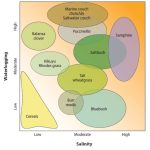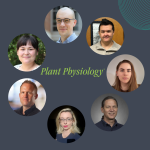Excitements and Hardships for New PIs in Plant Science
Starting and running a lab is an exciting and challenging endeavor for any new principal investigator (PI). Being a PI at a university carries the great responsibility of not only doing science, but also mentoring the next-generation of scientists. To provide first-hand insight into the experience of starting and running a lab, we interviewed five PIs with diverse research interests in plant science who have recently established their own labs. Our guests shared the exciting moments of running a lab, as well as the hardships they are facing, and offered valuable advice for future PIs. To navigate the challenges, they all credited the help from peers, colleagues and mentors. To be successful, balancing time and setting up priorities are important. Although being a PI can be a challenging experience, it is also incredibly rewarding.
Whether you are a graduate student or postdoc exploring career options, a new PI starting out, or a senior PI seeking to help colleagues navigate challenges, we hope this interview provides helpful insights.
Invited Guests
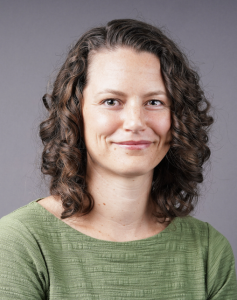
Morgan E. Furze
Dr. Morgan E. Furze, Assistant Professor, Department of Botany and Plant Pathology, Department of Forestry and Natural Resources, and Center for Plant Biology, Purdue University, USA. Lab website: https://www.morganfurze.com. Twitter: @morganfurze.
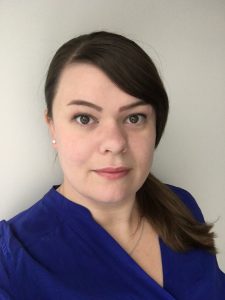
Heather McFarlane
Dr. Heather McFarlane, Assistant Professor, Department of Cell & Systems Biology, University of Toronto, Canada. Lab website: https://mcfarlane.csb.utoronto.ca/. Twitter: @h_mcfarlab.
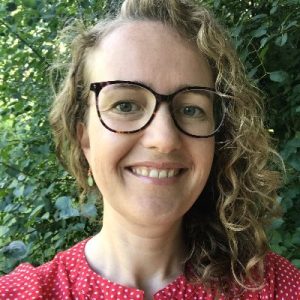
Lena Maria Müller
Dr. Lena Maria Müller, Assistant Professor, Department of Biology, University of Miami, USA. Lab website: https://www.plantmycolab.com. Twitter: @lena_m_mueller.
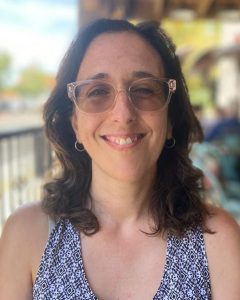
Cecilia Rodriguez-Furlan
Dr. Cecilia Rodriguez-Furlan, Assistant Professor, School of Biological Sciences, Washington State University, USA. Profile page: https://sbs.wsu.edu/cecilia-rodriguez-furlan/. Twitter: @cecirf1.
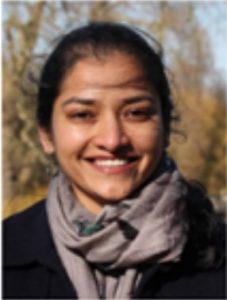
Pallavi Singh
Dr. Pallavi Singh, Lecturer (Assistant Professor), School of Life Sciences, University of Essex, UK. Profile page: https://www.essex.ac.uk/people/singh38507/pallavi-singh. Twitter: @Thepallavisingh.
The Excitement of Starting a Lab
When did you start your lab, and could you tell us a little bit about your research?
Dr. Furze: I started the lab at Purdue University in August 2022. We study how plants, especially trees, interact with the abiotic and biotic world around them. We seek to understand plant and ecosystem function and resilience to better predict the impacts of global change. A major interest in the lab is characterizing woody plant carbon dynamics, particularly the storage and use of nonstructural carbohydrate reserves. Our questions are often approached at the organismal level and then we try to expand across scales from molecules to ecosystems. We integrate physiology, ecology, and evolution and use tools like 3D imaging and isotopes to explore carbon-related processes in diverse environments from forests to agroecosystems.
Dr. McFarlane: I started my lab at the University of Toronto in July 2019 and my first graduate students started September 2019. My lab studies cell wall synthesis, secretion, signaling, and remodeling with a view to improving plant biomass for food, materials, and energy. I am a plant cell biologist, so we are working to uncover the molecular mechanisms that regulate the plant cell wall.
Dr. Müller: I started my lab at the University of Miami in the spring of 2021. We investigate the molecular mechanisms that allow plants to control colonization of endosymbiotic fungi. We focus on a mutually beneficial plant-fungus relationship – the arbuscular mycorrhizal symbiosis -, which around 80% of all land plant species engage in to optimize their nutrient uptake. In return for mineral nutrients supplied by the fungus, the plant provides the fungus with carbon. We are interested in understanding how plants make sure that symbiotic costs and benefits remain in balance. We are specifically interested in a signaling mechanism that involves symbiosis- and nutrient-induced CLE peptide hormones and their cognate receptors. We use the legume Medicago truncatula as a model species, but we expect that our findings can be translated into crop plants in the future. Optimizing plant interactions with beneficial fungi could be a promising strategy to reduce fertilizer input for a more sustainable agriculture, and make plants more resilient to abiotic and biotic stresses associated with a changing climate.
Dr. Rodriguez-Furlan: I joined Washington State University in August of 2022. My research focuses on understanding the significance of endomembrane traffic toward the vacuole during stress responses.
Dr. Singh: In September 2022, I established my own lab at the University of Essex, focusing on enhancing photosynthesis and plant productivity. The increasing demand for food production combined with declining freshwater supplies and more frequent droughts presents a major challenge to agriculture and food security. To address this, my lab studies water use efficiency (WUE) in plants, which measures the biomass produced per unit of water consumed. We aim to understand how the vascular transport system, particularly xylem, and aquaporins, in cereal crops, contribute to whole plant water use and tolerance to water deficits. The goal is to develop more water-efficient crops and promote climate-smart agriculture. Our research employs a range of functional genomic and synthetic biology techniques, including single-cell sequencing, epidermal cell enrichment, RNA sequencing, cereal grafting and targeted genetic manipulation using genome editing.
What do you feel in general when starting your own lab?
Dr. Furze: Starting my own lab feels like how I imagine it feels to start a small business. I was given office and lab spaces with the freedom to build everything from the ground up. This is simultaneously exciting and overwhelming because it comes with a lot of responsibility and the need to multitask. All the decisions associated with building a functioning lab – from ordering equipment to hiring students and postdocs – are mine and take both time and thought.
Dr. McFarlane: Excited!
Dr. Müller: Running a lab was (and still is) very exciting and intimidating at the same time. On the one hand, I get to do the science that excites me the most. I very much enjoy mentoring students and postdocs, reading papers and thinking about research. On the other hand, it is very intimidating to be the one person to make all the critical (and sometimes unpleasant) decisions for the lab, because that’s not something we get trained for as postdocs. Also, I am responsible for making sure the lab is well funded, which can be a bit nerve-wracking sometimes.
Dr. Rodriguez-Furlan: I felt incredibly energized and determined, but at some point, it can become overwhelming, so keeping yourself focused is essential.
Dr. Singh: Starting a lab has been both exhilarating and daunting for me. The learning curve is steep. The most exciting aspect is the opportunity to test scientific ideas and design experiments to test those ideas, and eventually writing all these into grant applications. Although few initial rejections have been discouraging, my curiosity keeps me motivated. On the other hand, I have faced challenges in the administrative, financial, and hiring aspects, as I never received training in these areas during my PhD or postdoc.
Could you share with us some of the most exciting moments of running a lab?
Dr. McFarlane: There were so many firsts: our first equipment (a microwave), our first consumables (MS media), our first experiments (making competent cells), our first activity together as a lab group (carving pumpkins for Halloween). Each of these firsts was really special to me. Even though we’ve now run through most of the “lab firsts” it’s still so exciting for me to see all of the firsts that trainees in my lab experience, such as their first unexpected results, their first time attending a conference, or their first publication.
Dr. Müller: For me the most exciting part is the transformation of an empty lab space into a functional research lab with a community of people that work in it. In the beginning, I very much enjoyed unwrapping all the brand-new equipment and organizing the lab drawers when the lab first opened its doors. Then of course, it was super exciting when the first lab members arrived and started to settle in. Now I love working with students and postdocs and supporting them with their research projects. It feels good to be able to show them new techniques, but also learn from them in return. It is a joy to witness the formation of a sense of community among my lab members. After all the hard work, it is very rewarding that the lab is now beginning to produce some exciting results.
Dr. Rodriguez-Furlan: I was so excited when I finally could see my students’ running experiments and having their first results. It is such a rewarding experience.
Dr. Singh: As a relatively new lab, I am fortunate to have bright research assistants. Training the next generation of plant scientists is a source of great joy, and sharing small eureka moments with them is truly amazing. The energy among the team is contagious and keeps all of us in the lab motivated.
In general terms, could you tell us what things take up most of your efforts? Like grant writing, manuscript writing, teaching, working at the bench to wrap up some work, administrative tasks, or some other work?
Dr. Furze: I was not expected to teach immediately, so my efforts so far have been split between administrative tasks (e.g., setting up the lab/learning how things work at the university) and writing. Writing has been a central part of my job and it is a daily activity. I write things like manuscripts, grants, letters of recommendations, lab safety procedures, and emails.
Dr. McFarlane: It’s a balancing act amongst all of the things that you listed. I like the variety, but it can be tricky to choose how to invest my time and energy.
Dr. Müller: During the semester, my teaching duties take up a lot of my time. It takes a lot of effort to develop a course and help students succeed in class. There are also so many meetings! However, my passion is research, so I try to dedicate as much time as possible to it. I mentor students and postdocs in my lab and support them and their projects. Therefore, a lot of my time is spent meeting and discussing science with them and reading papers that could help interpret results. This is very rewarding and makes up for the not-so-exciting parts of my job as an assistant professor (like, for example, administrative tasks). From time to time, I still do experiments myself, which is also a lot of fun. Although I love writing, I find that it is very easy to get distracted from writing grants/manuscripts by focusing on small, seemingly more important tasks (emails!). Therefore, I am currently working on creating a ‘writing habit’ and actively plan grant/manuscript writing times during my week.
Dr. Rodriguez-Furlan: Administrative tasks are, at first, the most challenging. You need to familiarize yourself with the system. In my case, I was learning the administrative needs as I performed new tasks. Administrative activities tend to take over your day; you have other plans, but your inbox is always filled with unanticipated administrative responsibilities. I am getting better at managing and prioritizing these duties.
Dr. Singh: As I am still at the initial phase of setting up my lab, a typical day consists mainly of grant writing. This includes applying for both small and larger grants. I also spend time training lab members, working at the bench and developing my own soft skills in finance and administration. In the evenings, I focus on finishing manuscripts from my previous postdoc and creating induction manuals, protocols, and record-keeping systems for our new lab.
The Hardships of Starting a Lab
Could you share with us some of the challenges you faced as a new PI?
Dr. Furze: The transition from a well-oiled lab with many labmates to a new lab can feel daunting and isolating. I think it is natural to want to jump right in but getting a lab up and running takes time. Since there are so many different moving pieces involved in getting the lab set up, it can be hard to recognize the progress that you are making towards the end goal. I also thrive on interacting with labmates, so another challenge has been spending most of my day alone in the office. A postdoc and undergraduate student recently joined the lab which has brightened my experience!
Dr. McFarlane: The act of balancing all of the different demands (mentoring trainees in my lab, teaching, grant and manuscript writing, lab work, administrative responsibilities) is probably the most challenging for me. Of course, the COVID-19 pandemic has also been an unexpected challenge. Sometimes people ask me whether things have now returned to normal, but I don’t think my lab ever had a chance to experience “normal” before the pandemic since we were still just getting started!
Dr. Müller: I started the lab in spring of 2021, in the middle of the pandemic. When I started, the supply chain crisis had only just begun, and we had to wait months and months for lab space renovations, equipment, or even small consumables like centrifuge tubes. There was a delay in recruiting lab members caused by hiring freezes, visa delays, etc. Trying to establish a research program with limited resources was very challenging and took a lot longer than I had hoped for. But even under non-pandemic circumstances, moving from a postdoctoral position – where you get to focus on your project, are ideally working with a team of peers, and are supported by your PI – to a faculty position, where you are essentially on your own, is a difficult adjustment and a steep learning curve.
Dr. Rodriguez-Furlan: Administering my time has been a challenging task. You must focus on your daily plans, but even if I’m adept at multitasking, handling distractions such as new urgent administrative work, students’ concerns, lab emergencies, and sales reps, among others, is a real test.
Dr. Singh: As a new PI, I have faced some challenges such as managing the expenses and financial aspects of scientific research. I am also learning to find a balance between being hands-on and hands-off at certain times in the research project, to support my team, allowing them to fully contribute to their work. Maintaining this balance is essential for efficient and effective research progress. I am fortunate to have supportive colleagues and excellent academic mentors who are always willing to guide me when necessary.
What are some of the most important supports to help you navigate through the challenges?
Dr. Furze: Even though they may not be in your lab, your colleagues are your teammates! They are eager to mentor you and help make your transition to the department and university easier. It is important to seek out their help and ask lots of questions! I would also suggest exploring university-sponsored programs and workshops that support new faculty. You will likely find workshops on mentoring students, time management, grant writing, etc. For example, I am participating in a Faculty Success Boot Camp this spring.
Dr. McFarlane: Mentors have been extremely valuable to me. My colleagues and the staff at UofT have been tremendously supportive as I’ve set up my new lab and so have many of my colleagues in plant biology around the world. Several of my near-peer colleagues have been particularly helpful; these are people in the Canadian plant biology community and who are a few years ahead of me in their careers, who have “showed me the ropes” and been extremely generous about sharing experiences, advice, and even grant applications and budgets.
Dr. Müller: I am fortunate to have very supportive colleagues, friends, and family. Many of the friends I made during my PhD and postdoc are now also starting their lab. It feels good to have their support and being able to call them to get advice, vent, or simply know that I am not alone.
Dr. Rodriguez-Furlan: Without other PIs, the mentorship committee, the administrative staff, and the facilities staff, I do not know where I would be. A positive relationship with your coworkers can be extremely helpful, I would say essential.
Dr. Singh: Supportive colleagues and academic mentors have provided invaluable advice and guidance on navigating through the challenges. Reaching out and connecting with other new PIs has been incredibly helpful. Learning from their experiences has been valuable. Additionally, sharing experiences has made me realize that I am not alone and that we are all in the same boat.
How do you stay motivated and keep moving forward, despite the hardships and challenges you may face as a new PI?
Dr. McFarlane: When things feel tough, I find it helpful to refocus on the big picture of why I want to be a PI and why I enjoy doing science. It’s also important for me to have sources of challenge outside of my workplace so that I don’t end up in a kind of antagonistic relationship with my work and to cultivate sources of enjoyment and connection that are distinct from science. I am a serious ice hockey fan (and beer-league-quality player), I enjoy cooking and knitting, and I read a fair bit (mostly literary fiction, plus some science fiction and poetry).
Dr. Müller: I am very fortunate to be working with a great team who were brave enough to join a new lab. Working with them definitely keeps me motivated and seeing them being excited about plants and fungi is very inspiring.
Dr. Rodriguez-Furlan: I’ve just recently begun working as a PI, but this is precisely where I want to be and what I’ve always wanted to do. The pressures of the tenure track are high, but I enjoy my work as a researcher; despite this, I love being a researcher and an educator.
Dr. Singh: The constant curiosity to understand biological questions is what drives and motivates me. In addition, having a daily to-do list, breaking down the bigger picture into smaller, manageable targets, helps me stay focused and motivated.
What are some of the key lessons you have learned during your time as a new PI?
Dr. Furze: I’ll share 3 key lessons that I learned during my first semester. It is important to 1) think strategically and map out a plan each semester, 2) set boundaries and prioritize your responsibilities in a way that meets your department’s expectations AND creates a fulfilling career for you, and 3) slow down and take time for yourself because early habits, like good work-life balance, can be lasting.
Dr. McFarlane: I have learned (and am still learning!) to make decisions about how I spend my time and energy based on what I value. Jacqueline Monaghan (Queen’s University) and I co-hosted a workshop at the ICAR meeting in 2021 and Liz Haswell (Washington University in St. Louis) presented a wonderful component on values-driven leadership that I found particularly helpful. I’m pretty in touch with my values, but I am working on doing a better job of aligning my decisions with these values. I’m finding this practice is especially helpful when I’m balancing the various demands of being a PI. We’ve recently compiled the workshop into an article with Journal of Experimental Botany here: https://doi.org/10.1093/jxb/erac407 for anyone who is interested in learning more. (Note: This article was featured in the Plant Science Research Weekly Series by Plantae)
Dr. Müller: In one word: Patience. I could not imagine how challenging it would be to establish seemingly simple protocols in a new location (who knew it could be so difficult to grow plants?). I also had no idea how many administrative hurdles need to be overcome to purchase an expensive piece of equipment or to hire someone. I also forgot how long it takes to get the first results after starting a new project from scratch. Accepting the fact that I cannot influence everything and that some things just take as long as they take helped me relieve a bit of the pressure I put on myself.
Dr. Rodriguez-Furlan: It is essential to have a well-defined plan, and your objectives and priorities must be crystal clear. It is easy to lose sight of the big picture in favor of daily tasks. Have a plan, and do your best to modify it as you go while maintaining your focus.
Dr. Singh: Some of the key lessons I have learned during my time as a new PI include the importance of scientific networking and collaboration. Reaching out to other new PIs and working with established researchers can provide valuable support and advice for research projects and grants. Managing the financial, administrative, and personnel aspects of running a lab can be challenging, but breaking down these tasks into smaller, achievable goals can help streamline the process. Creating a daily to-do list is also a useful tool. Lastly, it’s essential to develop resilience. Throughout an academic career, there will be many rejections and setbacks, but maintaining a positive attitude and persevering through tough times is key to moving forward.
Advice
Now that you are a few years into this role, what advice would you have for aspiring PIs who are just starting out in their careers?
Dr. Müller: Be ambitious but realistic. Be patient. Be kind to yourself. Don’t be afraid to reach out to colleagues and peers for advice. Have fun!
Dr. Rodriguez-Furlan: I’m just starting out, but based on what I know so far, find a workplace with supporting coworkers; I cannot imagine how difficult it must be to work without them.
Now that you have started your lab, what advice would you have for earlier career postdocs and graduate students who want to become PI in the future?
Dr. Müller: Try to carve out your own research ‘niche’ early on, even if it is only a small side project that is independent of your PI’s research program. It is important that you have a basis to build upon and establish your own ‘brand’ once you lead your own lab. Also, I recommend actively seeking contact with scientists of your career stage and growing a network of peers early on (e.g. by going to conferences or society meetings). For me, these connections I built while I was a PhD student or postdoc are still very valuable to me – not just because they are long-time friends but also because many of them are now at a similar career stage and share similar excitements and hardships.
Dr. Rodriguez-Furlan: You have to build your research expertise based on how you envision your future laboratory. Participate in DEI activities and publish as much as possible. Take classes in mentoring, grant writing, and teaching approaches. Building a solid network of collaborators will also pay benefits in the future.
Dr. Singh: While I may not consider myself highly experienced to give advice, one of the most important lessons I have learned in my academic journey is to believe in oneself. Academic environments require a great deal of resilience. There may be days and phases in our research careers when we experience doubts, and that is normal. It is crucial to overcome these doubts and have strong faith in ourselves and our research goals. It is important to avoid comparisons, as each of us is on our own journey and will reach our academic objectives through different paths. There is no universal solution, and it is important to keep this in mind.
Is there any additional information you want to share about this topic?
Dr. Rodriguez-Furlan: I want to emphasize that the difficulty is real, but it is also a wonderful experience; I feel there are not enough good remarks. Seeing my students advance, become enthusiastic about our common research, and develop a small lab community is incredibly fulfilling. In addition, the teaching component can be both demanding and rewarding. I’d want to conclude this segment by stating that I love having my new lab and that I’m quite enthusiastic about the future.
Dr. Singh: I would be delighted to answer any questions from Early Career Researchers who are considering an academic career. Please don’t hesitate to reach out to me.
______________________________________________
About the Interviewer
Xiaohui Li is a PhD student at Purdue University and a 2023 ASPB Plantae Fellow. He is a cell biologist who occasionally does some coding. He is currently studying the mechanism and regulation of the exocytosis process in plant cells, using a combination of quantitative cell biology, chemical genetics and computational biology approaches. Beyond that, he has broad interests in plant biology, including cell dynamics, evolution and host-microbe interactions. You can find him on Twitter at @Xiao_hui_Li.


